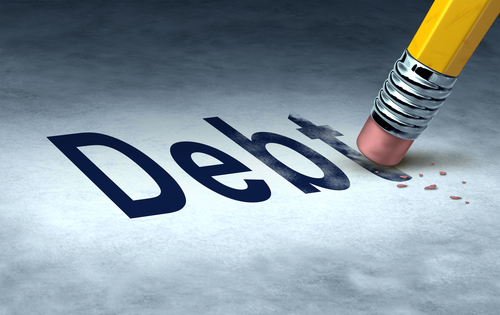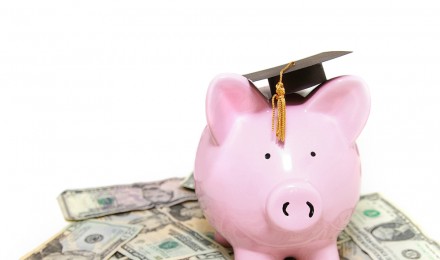If last year was a bad year financially, you may develop a strategy to make 2013 the best year ever. Perhaps you lost your job or dealt with an injury that prevented full-time work. Maybe you went through a divorce or simply couldn’t keep up with the higher cost-of-living. Then again, last year’s salary may have provided more than enough income, yet overspending triggered a ton of credit card debt.
The average American household with at least one credit card has a balance over $15,000. Perhaps this statistic applies to your household. But regardless of whether your high debt resulted from situations beyond your control or poor budgeting, there are practical and effective ways to pay off credit card spending from 2012 to 2013. It takes more than a desire to wipe your balances, you need a plan.
If your credit card debt keeps you awake at night, here are three ways to pay down balances faster.
1. Ask for a lower interest rate. You might ask, “what does a lower rate have to do with paying off my credit card.” Granted, a lower rate will not mysteriously reduce your balance. But the less you pay in interest each month, the faster you’re able to pay down your balance.
Let’s say your creditor currently charges 18% interest. If you have good credit and request a lower rate, your lender may reduce your rate to 10%. This works to your advantage. Since you’ll owe less interest, more of your payment will go toward the reduction of your principal.
2. Pay more than your minimum. To benefit the most from a lower interest rate, pay more than your minimum. Even if your creditor does not reduce your rate, paying more each month can knock down balances faster. Review your budget and determine how much you spend on entertainment, recreation, eating out and other non-essential expenses. For example, you might spend $300 a month on entertainment/recreation. Imagine how fast you could slash credit card debt if you prioritized your spending.
Maybe you don’t have the bankroll to drop hundreds of dollars on debt each month. But with some financial adjustments, you might find room in your budget to double, triple or quadruple your minimum payments.
3. Stop charging. Such a simple concept, but this is easier said than done. If credit cards were your primary method of payment last year, breaking this habit can be difficult. Unfortunately, you cannot pay off credit card debt if you keep increasing your balance. This creates a never-ending cycle that keeps you in debt.
Don’t cancel your credit cards – find a way to live without them. Keeping a stack in your wallet is temptation island. Do yourself a favor and cut your credit cards in half, or tuck them away safely. With your cards out of sight, you’ll learn how to rely on cash and save up for purchases. And since you’re not incurring extra debt, you’ll start to notice a drop in your balance.
If last year was a bad year financially, you may develop a strategy to make 2013 the best year ever. Perhaps you lost your job or dealt with an injury that prevented full-time work. Maybe you went through a divorce or simply couldn’t keep up with the higher cost-of-living. Then again, last year’s salary may have provided more than enough income, yet overspending triggered a ton of credit card debt.
The average American household with at least one credit card has a balance over $15,000. Perhaps this statistic applies to your household. But regardless of whether your high debt resulted from situations beyond your control or poor budgeting, there are practical and effective ways to pay off credit card spending from 2012 to 2013. It takes more than a desire to wipe your balances, you need a plan.
If your credit card debt keeps you awake at night, here are three ways to pay down balances faster.
1. Ask for a lower interest rate. You might ask, “what does a lower rate have to do with paying off my credit card.” Granted, a lower rate will not mysteriously reduce your balance. But the less you pay in interest each month, the faster you’re able to pay down your balance.
Let’s say your creditor currently charges 18% interest. If you have good credit and request a lower rate, your lender may reduce your rate to 10%. This works to your advantage. Since you’ll owe less interest, more of your payment will go toward the reduction of your principal.
2. Pay more than your minimum. To benefit the most from a lower interest rate, pay more than your minimum. Even if your creditor does not reduce your rate, paying more each month can knock down balances faster. Review your budget and determine how much you spend on entertainment, recreation, eating out and other non-essential expenses. For example, you might spend $300 a month on entertainment/recreation. Imagine how fast you could slash credit card debt if you prioritized your spending.
Maybe you don’t have the bankroll to drop hundreds of dollars on debt each month. But with some financial adjustments, you might find room in your budget to double, triple or quadruple your minimum payments.
3. Stop charging. Such a simple concept, but this is easier said than done. If credit cards were your primary method of payment last year, breaking this habit can be difficult. Unfortunately, you cannot pay off credit card debt if you keep increasing your balance. This creates a never-ending cycle that keeps you in debt.
Don’t cancel your credit cards – find a way to live without them. Keeping a stack in your wallet is temptation island. Do yourself a favor and cut your credit cards in half, or tuck them away safely. With your cards out of sight, you’ll learn how to rely on cash and save up for purchases. And since you’re not incurring extra debt, you’ll start to notice a drop in your balance.






